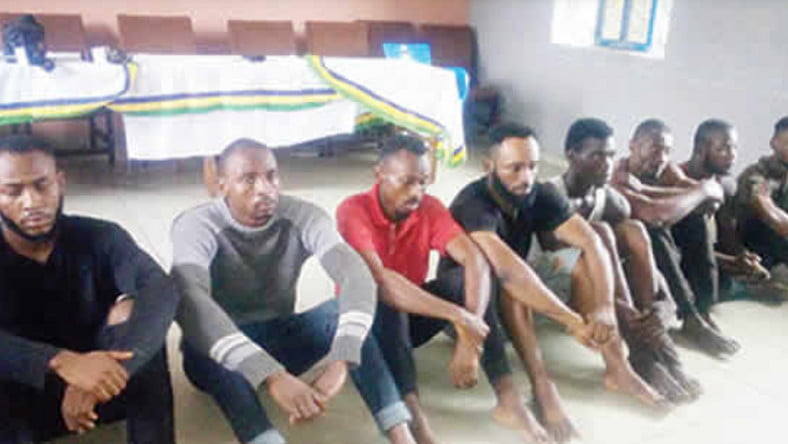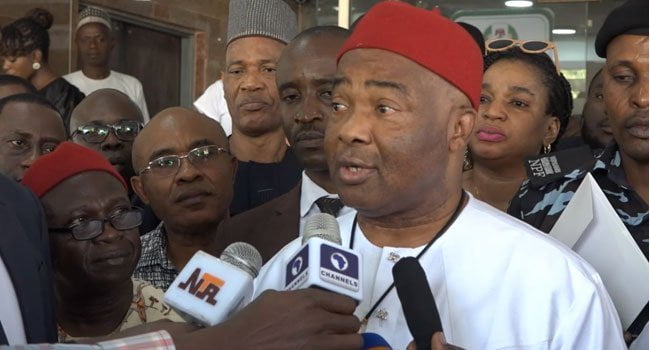The euphoria that greeted the launch of the Ogoni cleanup project has faded and the rising expectation has become another case in point in the famous “Revolution of Rising Expectations” almost two years after promise.
A report, the other day, of the budget of a paltry N20 million for the cleanup mission in the volatile Ogoniland, Rivers State in the 2018 spending plan has advertised yet another breach of the covenant with the environmentally embattled people. It is indeed another heartbreaking story of lack of seriousness on the part of government.
And so the idea that unfulfilled, rising expectations create unstable political situations has a long tradition in political and social analysis should be sobering to public officers in Abuja at this time.It is not clear what the problems are but, naturally, Nigerians and indeed the Ogoni people would feel short-changed by the signals emerging to the 2016 rising expectations. There should be remedy to the rising frustration in the flashpoint that Ogoni area has become.
Indeed, against the backdrop of this criminal neglect of the people, the Ogoni, under the aegis of the National Youth Council of Ogoni People (NYCOP) the other day gave the Federal Government a 21-day ultimatum to mobilise workers to the site and commence the cleanup of their polluted land. This warning signal from the youth should not be dismissed as a hate speech.
According to the youth organisation, the Federal Government should be ready to face the people in a fresh legal and global opposition should it fail to heed the warning on the cleanup.President of NYCOP, Young Npkah, even expressed worries on insecurity, fresh pipeline laying and resumption of oil exploration because of a mindless delay in the cleaning of the polluted ecosystem.
Citizen Npkah said some unknown persons laid pipes in Tai and Gokana Local Government Areas without negotiating with the Ogoni people or even without considering continued environmental degradation in the area. He warned those involved in such acts to stop immediately, noting that it was quite regrettable and shocking that those whose only interest is to pillage the nation’s God-given resources went ahead to lay pipelines without negotiation with the people who are the major stakeholders. He warned that neither pipe laying nor oil exploration would be allowed without an all-encompassing negotiation and due diligence, in this regard.
It is not surprising that the people of Ogoniland are anxious to see action on the strategic project. Two years into a promise is enough time to mobilise the needed workforce for a project that is billed to last for 30 years. Therefore, the sooner work begins, the better, as that glimmer of hope would boost confidence of the people.What is more, an apparently frustrated Rivers State Governor Nyesom Wike, the other day stated that the Federal Government was not serious about the cleanup of the Ogoni region of his state as promised.
The governor, who spoke to members of the Senate Committee on Environment who visited the area said the Ogoni cleanup programme remained a mere public relations gimmick aimed only at gaining political mileage and nothing else. He added a caveat that the people of Rivers State were tired of executive procrastination and so there should be some concrete action in the area. Certainly, such a negative perception of an otherwise noble plan should not be allowed to build up any longer.
It would be recalled that in the early stage of the administration the Buhari administration did well when he announced its unwavering commitment to the issue of equity and justice in the Niger Delta area. The Vice President Professor Yemi Osinbajo was the one who made public government action plan on this lofty project at its launch barely two years ago.
The United Nations Environment Programme (UNEP’s) report on Ogoniland, which mapped out what to do on Ogoni and its degraded environment was released in August, 2011 under the Goodluck Jonathan administration but no action was taken about its implementation.The UNEP report shared responsibilities among four critical stakeholders, namely, government, multiple stakeholders, operators and the communities with each having a duty to perform in the process of implementing the report.
The Federal Government, for instance, is expected to create an Ogoniland Restoration Authority Distinct from all existing institutions, create an environmental restoration fund, co-ordinate multi-stakeholder efforts and oversee institutional as well as regulatory reforms.As part of government’s duty, President Buhari has since approved the setting up of a Board of Trustees to commence the process of implementation and also a Trust Fund to finance the programme. All stakeholders are expected to contribute about N2bn.
As the process kicks off, each group is expected to fulfill its own part of the deal. Even the Ogoni communities have their own role to play and it is expected that they would fulfill their side of the covenant of development.At this juncture, the Federal Government should build hope by leading the way in taking further steps towards implementing the action plan. The commitment shown by setting up a framework and structure should not be allowed to ebb though some officialdom.
These concrete steps are necessary to allay the fears and frustrations of the people.In the main, the expectations of the people, especially in Ogoniland should not be cut off. Besides, the president’s promise of restoration of the Niger Delta region that has been markedly devastated by oil exploration should also not be forgotten. Specifically, government should commission a major people-focused, infrastructure project in the Niger Delta, but not at the expense of the critical cleanup of Ogoniland.
-GUARDIAN-





2 Comments